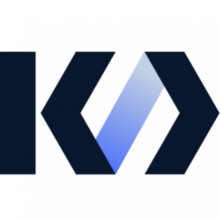Explore Top Laravel Development Companies in Bulgaria
Who we are: Platform Services is an EU based software development company with more than 70 professionals. Our team, formed of specialists in developm...
We are software developers specialized in enterprise software, e-commerce and cloud technologies.
Design. Development. SEO.
Services:
Eveda Design is a web design firm specializing in creation of ad sites, online stores, portfolio web saites and more. We produce sites for small, medi...
Services:
Crafting Unique Websites & Digital Solutions For Small Businesses
Services:
Branding, UX and Development agency
Services:
Студио Сайт Лого Визия Дизайн е специализирано в изработка на сайтове и онлайн магазини. Правим дизайн и редизайн на сайтове и изработваме лога.
Services:
Weband® is an award-winning web agency with a focus on Creative Web Design and Development. Branding & Identity, Creative Front-end & Back-end.
Services:
Stanga1 is a software engineering company propelling digital transformation, excelling in custom solutions and swift deployment of expert teams
Reliable, Effective Digital Agency
Services:
- 1
- 2
Filter Laravel Development Companies in Bulgaria by Cities
Find the right tech company near you or from a specific city. Some of the best companies might be located in smaller cities.
Find more Laravel Development companies around the world
TechBehemoths is the world's most advanced and user-friendly platform to match IT Companies with real clients without hustle.
The ICT Industry in Bulgaria: General Profile
Bulgaria has long been recognized for having a strong tech industry, and during the past few years has become one of the top software development hubs. Its geographical proximity to Western Europe and cultural similarities with the US and Western European countries, the availability of technically diverse, highly-skilled, and multi-lingual talent, the affordable labor cost, and favorable taxation are among the main advantages of the country.
With heavy traditions in IT and mathematics that could be traced back to the communist times, Bulgarians have strong technical knowledge and are one of the best-performing developers in Europe, as stated in the European Innovative Scoreboard 2025. They rank 26th in the overall chart and occupy top positions in major technologies such as Design Applications (#3) and Trademark applications (#3).
Why Should You Work With a Bulgarian IT Company?
Among the multi-national organizations that have already discovered the advantages of the country and built their operational and development centers in Bulgaria are companies like HP, SAP, Microsoft, VMware, and others. Currently, the IT sector in Bulgaria consists of more than 65,000 full-time employees (excluding freelancing professionals) according to the National Social Security Institute (NSSI).
Another reason for choosing a Bulgarian IT company compared to other countries in Europe is because one of the best price/quality ratios on the market. Bulgaria is known for its competitive labor costs compared to other EU countries, which translates into more affordable rates for IT services such as software development. The local IT companies have access to a talented pool of professionals with strong technical skills, problem-solving abilities, and proficiency in English. Also, they have a reputation for being adaptable and versatile, allowing them to work effectively on a wide range of projects and technologies.
As a result of the well-functioning education system and the rising popularity of privet educational organizations, this number is continuously increasing, making Bulgaria’s system very well suited to match the IT business needs.
At the same time, what makes Bulgaria attractive from an ICT perspective is the skilled workforce, EU membership, competitive labor costs, low corporate taxes, and a growing startup ecosystem.
What to Pay Attention to When Working With a Bulgarian IT Company?
Even though Bulgaria has a developing IT infrastructure, there are several indicators that make potential clients give second thoughts when working with Bulgarian IT companies. Among them are high piracy rates, a lack of cybersecurity infrastructure, and lower-than-average service quality compared to Western European countries.
At the same time, the other two main topics you should be aware of are talent retention and choosing the right vendor.
Talent retention can be a challenge for the Bulgarian IT industry, with skilled professionals sometimes attracted to opportunities in other European countries. To mitigate this risk, ensure that the local IT company you work with has a strong team and a track record of maintaining a stable workforce. Many local IT companies are offering their services. It is crucial to perform thorough research and due diligence when selecting a vendor, considering factors such as experience, expertise, client testimonials, and portfolio of work.
How Reliable Are Bulgarian IT Companies
The country has built a reputation as an attractive IT destination for developing software, establishing near-shore centers, and outsourcing business processes. With its strategic location and the steady growth of its economic and demographic indicators, the country has turned into a preferred development destination.
How the Bulgarian IT Industry Relates to the Neighboring Countries
Having Romania and Greece as the main regional competitors, Bulgaria’s IT industry is positioned somewhere between those two countries in international rankings. While Romania probably has more capacities in developing web and software solutions for the foreign market due to a long-term investment in IT education and a different business model, Bulgaria ranks better than Greece in some IT branches, such as BPO and Java programming.
Also, the IT industry in Bulgaria has experienced significant growth over the past decade. An interesting fact is that the industry has exceeded the Country’s GDP Levels from 25 years ago. Compared to neighboring countries such as Romania, Serbia, and North Macedonia, the Bulgarian IT industry performs competitively. Bulgaria's competitive labor costs, skilled workforce, and supportive business environment make it an attractive alternative for clients and investors seeking opportunities in the region.
The Bulgarian Business Environment From an ICT Perspective
Deyan Denchev, the founder of Bulgarian Lexis Solutions, appreciates the national business environment as being dynamic and rapidly growing, especially since the country joined the European Union in 2007. On this basis, Bulgaria is becoming a regional hub for technology startups and outsourcing services. The local ICT industry is driven by a strong pool of software developers, engineers, and digital professionals, and the country is home to a growing number of technology parks and incubators that nurture startups and innovative companies.
At the same time, the business climate for opening a new IT company as a local entrepreneur in Bulgaria is generally favorable. There are multiple local investment companies like LaunchHub, Eleven, and Sofia Angels Ventures, which you can easily reach directly or through the local acceleration programs and network events.
SAP, SiteGround & Others Dominate the Bulgarian ICT Stage
At the same time, several prominent IT companies are operating in Bulgaria, both local and international, that have made a significant impact on the country's IT landscape, like:
- Telerik (Acquired by Progress in 2014) - a leading provider of application development tools and services for web, mobile, and desktop platforms.
- VMWare - a global leader in virtualization and cloud infrastructure solutions - SAP - a market leader in enterprise application software.
- SiteGround - a leading web-hosting company with its headquarters in Bulgaria.
The Bulgarian Government Programs Supporting the ICT Development
Governmental institutions in Bulgaria encourage the development of the IT sector through a variety of policies, initiatives, and support measures, like investment in infrastructure. The Bulgarian government invests in digital infrastructure development to improve internet connectivity and create a more conducive environment for IT businesses. This includes initiatives to expand broadband access, enhance data center capacities, and promote the development of smart city solutions.
Also, the creation of Tech Park Sofia and INSAIT - Institute for Computer Science, Artificial Intelligence, and Technology are two great examples of governmental support of the IT sector. Another way of encouraging the IT sector is through access to EU funds and the creation of a more business-friendly regulatory environment for IT companies.
Sofia & Plovdiv - The Leading Tech Bulgarian Urbs
The two best cities in Bulgaria for establishing an IT business are Sofia and Plovdiv. Both cities have unique advantages that make them attractive locations for IT companies and entrepreneurs. As the capital and largest city of Bulgaria, Sofia is the country's primary economic and business hub. It offers several advantages for IT businesses, like a skilled workforce, a startup ecosystem, international presence, and connectivity. Plovdiv, the second-largest city in Bulgaria, is also emerging as an attractive destination for IT businesses due to: - Educational institutions like Plovdiv University and the Technical University, - Technology parks like Plovdiv Tech Park, - Lower operating costs - Compared to Sofia, Plovdiv generally offers lower costs for office spaces and living expenses.
The Bulgarian IT Talent Pool - Skilled and Attractive
According to Deyan Dunchev, the local talent pool in Bulgaria is characterized by well-educated and highly skilled individuals, particularly in the fields of computer science, engineering, and information technology. Bulgarian universities and educational institutions offer strong programs in STEM (Science, Technology, Engineering, and Mathematics) disciplines, which contribute to the development of a qualified workforce in the IT sector. The IT industry is seen as an attractive career choice for many young professionals due to the high demand, competitive salaries, career growth, and global and entrepreneurship opportunities.
What is Laravel and what are its benefits for your projects?
Laravel is a popular open-source PHP web application framework used for building web applications and websites. It's known for its elegant and expressive syntax, as well as its rich set of tools and libraries that simplify common web development tasks. Laravel was created by Taylor Otwell and released in 2011, and it has since gained widespread adoption in the PHP development community. Here are the key aspects and features of Laravel:
-
Elegant Syntax
-
MVC Architecture
-
Artisan CLI
-
Database Abstraction
-
Blade Templating Engine
-
Middleware
-
Authentication and Authorization
-
Routing
-
Caching
-
Testing
-
Security
-
Community and Ecosystem.
-
Scalability
When choosing a PHP framework for a project, there are several alternatives to Laravel, each with its strengths and use cases. The choice depends on project requirements, familiarity with the framework, and specific preferences. Here are some notable PHP frameworks that often compete with Laravel:
-
Symfony: Symfony is a high-performance PHP framework known for its flexibility and modularity. It is often used for large, enterprise-level applications. Laravel actually uses several Symfony components under the hood. Symfony provides robust tools for building web applications, APIs, and microservices.
-
Zend Framework (Laminas): Zend Framework, now known as Laminas, is a mature framework that focuses on building scalable and enterprise-grade applications. It provides a collection of reusable components for various tasks, allowing developers to choose and integrate only what they need.
-
CodeIgniter: CodeIgniter is a lightweight and straightforward framework that emphasizes simplicity and speed of development. It's often chosen for smaller projects and rapid application development (RAD). While it has a smaller feature set compared to Laravel, it's known for its minimal learning curve.
-
CakePHP: CakePHP is a full-stack framework that focuses on convention over configuration (CoC). It comes with features like scaffolding, a built-in ORM, and a friendly community. It's known for its simplicity and convention-driven development.
Companies specialized in providing services using Laravel can significantly benefit relevant projects. Their expertise in Laravel development allows them to efficiently create customized web applications that meet specific project requirements. With a deep understanding of Laravel's capabilities, these companies can ensure the project benefits from Laravel's robust features, clean code structure, and security mechanisms.
They expedite development using Laravel's built-in tools and extensive package ecosystem, making them well-suited for both small-scale and enterprise-level applications. Security is a top priority, with specialists implementing best practices to protect against common web vulnerabilities, enhancing the project's safety, especially when dealing with sensitive data.
After the project launch, these specialized companies offer ongoing maintenance and support, addressing issues, applying updates, and ensuring the application's long-term reliability. They also excel in integration with third-party services and technologies, expanding the application's functionality and enhancing the user experience.
In addition, some companies may offer UX and design services, further improving the project's visual appeal and usability. Through rigorous testing and quality assurance, they identify and resolve potential issues before deployment, ensuring the application performs reliably across various devices and browsers.










